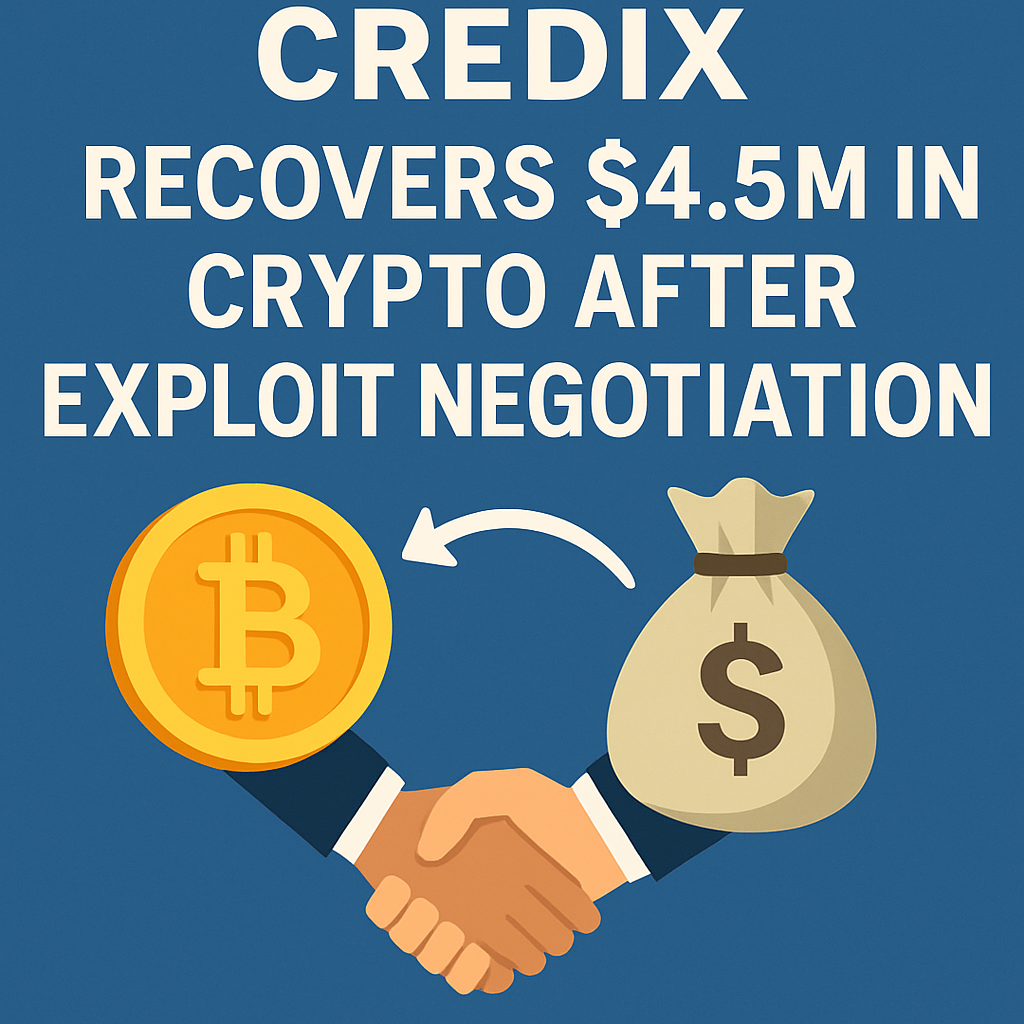On August 5, 2025, decentralized finance protocol CrediX disclosed the successful recovery of $4.5 million in crypto assets that had been drained during a recent smart contract exploit. The incident highlighted both the risks inherent to cutting-edge DeFi platforms and the maturing toolkit available for post-exploit recovery.
Exploit Details: The attacker identified a reentrancy vulnerability in CrediX’s liquidity pool contract, allowing repeated withdrawals of wrapped ether (WETH) within a single transaction. Exploitation commenced in the early hours of August 4, resulting in initial losses estimated at $5 million.
Negotiation Process: Rather than pursuing on-chain countermeasures alone, CrediX engaged a crisis-response team specializing in exploit negotiations. Over a 24-hour period, the team communicated off-chain with the attacker via encrypted channels, appealing to ethical considerations and offering a partial safe-harbor arrangement.
Recovery Outcome: The attacker agreed to return 90 percent of the stolen funds—amounting to $4.5 million—in exchange for a moratorium on legal action. The recovered assets were routed through a guardian address and redistributed to affected liquidity providers via the protocol’s emergency recovery module.
Implications for DeFi Security: This successful negotiation underscores the potential of alternative recovery strategies beyond solely on-chain patches. Key takeaways include:
- The importance of maintaining open communication channels for white-hat operatives.
- Protocol designs must include upgradeable rescue clauses and governance-approved emergency withdrawal mechanisms.
- Industry collaboration between security firms, negotiators, and legal advisors can materially reduce net losses.
Following the recovery, CrediX’s governance board convened to fast-track an audit and implement a permanent fix to the flawed contract. The incident serves as a case study in proactive risk management and demonstrates the pragmatic value of negotiated recoveries in preserving user funds within the DeFi ecosystem.

Comments (0)